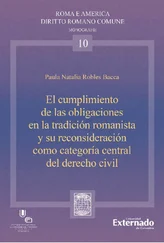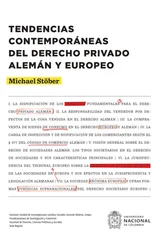What matters are learning pressures, i.e. internal changes induced by external constraints. Both elements have to be present in order to enable public and private codes to act in combination: an internal change of cognitive and normative structures and external pressure directed towards it . Otherwise ultracyclical linkages do not emerge, and public codes remain external impulses with no effects. Here, the above-mentioned special quality of mutual closure becomes apparent which makes possible a special quality of mutual opening. A transfer of validity between both is out of the question, instead learning pressures, that is other mechanisms of mutual opening, are developed.
At this point, one of the most significant changes in the legal structure becomes visible, which occurs in the transition to world society. Niklas Luhmann described this change in the following way:
“at the level of the consolidating world society, norms (in the form of values, regulations, purposes) do not anymore steer the pre-selection of the cognitive, rather vice versa the problem of adaptation through learning gains structural primacy and the structural conditions for the capability of all subsystems to learn have to be supported.” 49
This means that the code-orders of the two networks do not simply communicate via the medium of law. The validity of normative expectations is not transferred from one network code to another via legal operations. Instead, learning processes of corporate legal codes are triggered, often even compelled, by non-legal media — by expertise, by political and societal power, by normative persuasion as well as by monetary incentives and sanctions. In this context, cognitive primacy does not mean that corporate codes lose their legal-normative quality and only function as mere cognitive expectation. It is only the relations between the two normative networks that become de-normativized. While the codes themselves remain normative orders, the relations between them switch to cognitive mechanisms.
What does the first element of learning pressures — cognitive learning — consist of? The public codes only provide “templates”, behavioural models, principles, best practices, recommendations for the private codes. The ultracyclical linkage of both network codes triggers learning processes, which do not take place as validity transfer of rules within one legal order but run across the boundaries of mutually closed orders. Their particularity is that they do not amalgamate the involved orders into one unitary legal order with common legal operations, rather they are reconstructed via complex cognitive processes. 50It is exactly this separation that makes possible a cognitive surplus value, which is generated when the sparks of perturbations jump across the boundaries between the involved codes. This may even lead to normative innovation. The ultracycle does not end their autonomy, rather it uses their autonomy to produce new norms, both of hard law in intra-company codes and of soft law in the codes of the state world.
What makes the learning effect special? Corporate groups can use the public codes to gauge what societal expectations they face, without having to follow them completely. In this way the public codes counterbalance the tunnel vision developed by the private codes and provoke their re-orientation towards a transnational public policy. Public codes provide constitutional stimuli for learning similar to the normative demands placed on corporate networks by protest movements and civil society organizations.
What does the second element — pressure — consist of? In this learning process, legal sanctions do not play a prominent role. Rather extra-legal mechanisms are responsible for the effect that corporate networks take public codes as compulsion for learning, and develop their own codes for their particular circumstances. In no way are these extra-legal mechanisms inferior to legal sanctions. First and foremost, it is inter-organizational power processes — unilateral pressure and political exchange — that force commercial enterprises to develop corporate codes. It cannot be stressed enough that this external pressure is an indispensable condition for corporate codes to exert an effect at all. 51
According to the hitherto existing experience, nation states and the international organizations of the state world have generated the necessary power resources, yet only to a certain extent. The power pressures of a public network, of protest movements, NGOs, unions, non-profit organizations and public opinion have proven to be crucial. Economic sanctions often tip the scales. The sensitivity of consumers, of whose purchase behaviour corporations are dependent upon, and of certain groups of investors, who exert economic pressure on the commercial enterprises is decisive. 52It remains to be seen, whether the state world will take a leading role in exerting stronger external pressures on corporations after the financial crisis. In this context, the latest news rather feed scepticism. In any case, although they would change the balance between internal and external regulation, they would not make disappear the difference between hypercycle and ultracycle.
Behind the metaphor of “voluntary codes”, therefore, lies anything but voluntariness. Transnational corporate networks enact their codes neither on the basis of their understanding of common good requirements nor due to motives of corporate ethics. They comply only “voluntarily”, when massive learning pressures on them are exerted from the outside. The learning process does not proceed within the legal system from code to code via validity transfer of rules, but on a long-winding detour through other social systems and other media of communication. It is not sufficient to describe this as if legal sanctions are simply replaced by social sanctions. This would conceal the drastic effects such circuitous learning pressures have. In the described ultracyclical “translation processes”, system boundaries are in fact transcended; a perturbation cycle emerges between legal acts, pressures of political and societal power, cognitive operations of epistemic communities, normative persuasion and economic sanctions, which then goes back to legal acts in the other code. The original content of the public recommendations is dramatically changed, when they undergo a complicated translation process into different worlds of meaning. When the soft law of the public codes is “translated” into the language of expert knowledge, which develops models and organizes monitoring, this creates special effects. Different outcomes occur when it is translated into the inter-organizational power of political negotiations between international organizations, NGOs and transnational corporations, different again when it is reconstructed in the reputation mechanisms of the public or in monetary incentives and sanctions. Other changes occur when finally it is “re-translated” into the legal parlance of the hard law of intra-company and inter-company codes. These rather indirect connections between both network codes highlight that the auto-constitutionalization of the corporate world does come about neither due to intrinsic motives of voluntariness nor due to the sanctioning mechanisms of state law, but due to a circuitous translation process in which different learning pressures come to bear.
CAPÍTULO 3
Régimen de diversas actividades en redes empresariales 53
PETER KREBS Y STEFANIE JUNG
I. INTRODUCCIÓN
Las redes empresariales son una forma difundida de cooperación en Europa, especialmente entre pequeñas y medianas empresas (PYMEs). 54Las redes empresariales son también un instrumento legal interesante para el a veces descuidado grupo de las compañías medianas de mayor tamaño 55, mientras que las compañías grandes no encuentran la necesidad de cooperar con los socios en el marco de una red empresarial. Aún si están dispuestos a unirse a una red empresarial, la legislación anti-monopolios prohíbe la mayoría de las formas de participación que son interesantes desde un punto de vista económico para las compañías grandes. 56
Читать дальше











